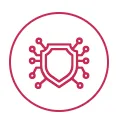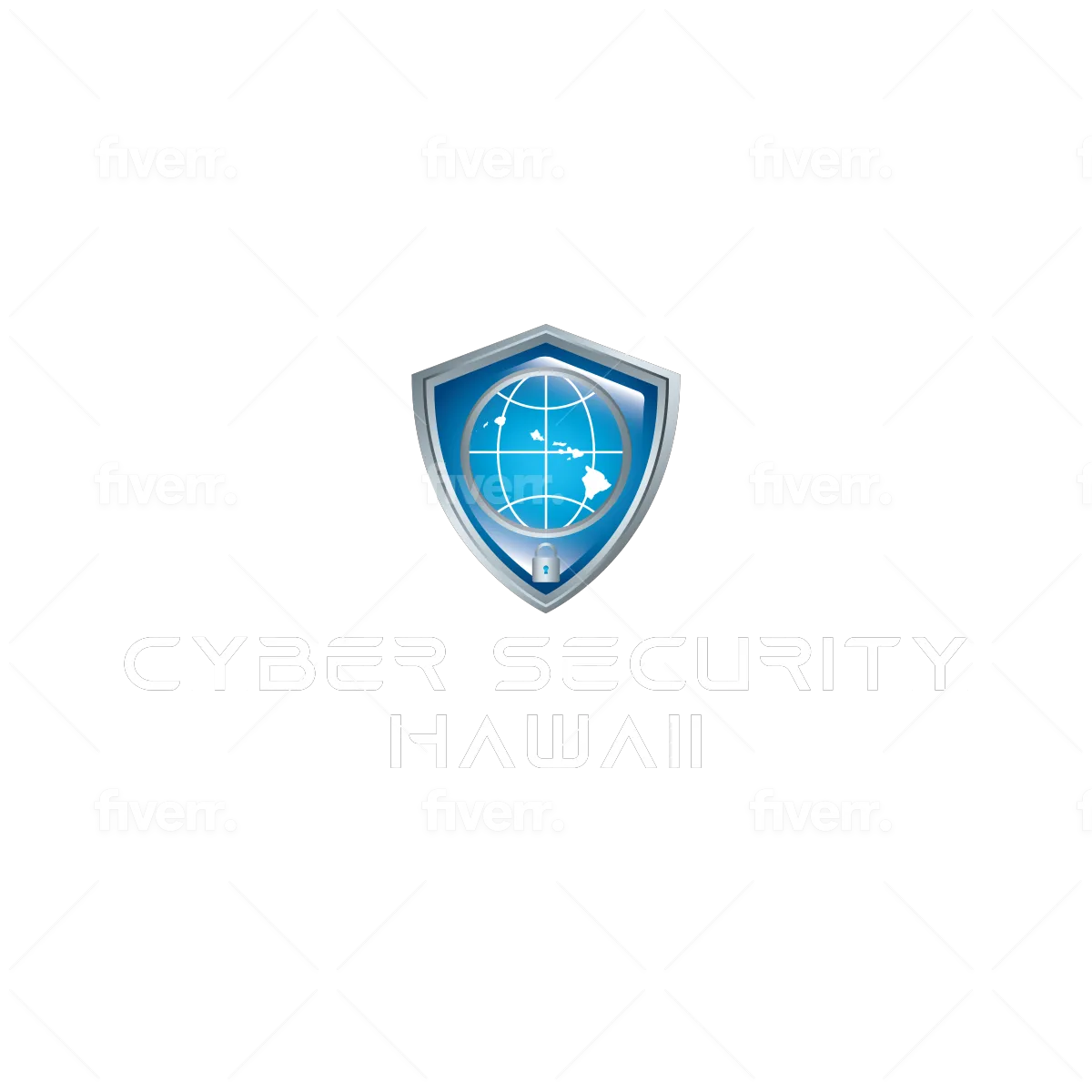Is Your Business Prepared For A Cyber Attack?
Book a free 15 minute IT Strategy Session - Get Prepared For The Next Cyber Attack with Cyber Security Hawaii's Managed Services for Hawaii Businesses
Book a free 15 minute IT Strategy Session - Get Prepared For The Next Cyber Attack with Cyber Security Hawaii's Managed Services for Hawaii Businesses
In the digital heart of Honolulu, your business's security and IT infrastructure demand vigilance. As Hawaii's only FTC Safeguards compliant Managed Services Provider (MSP), we blend local expertise with the tactical precision of former government cyber operatives to not only safeguard your sensitive data but also ensure your IT operations run smoothly. We believe in a proactive, not reactive, approach to both cybersecurity and IT services on Oahu.
One of our clients, with a complex network design with various Internet facing devices, experienced this firsthand. We segmented their network, ensuring that even if an internet-facing device was compromised, attackers couldn't reach their critical data. When an attack did occur, our proactive measures prevented a breach, saving our client from potential disaster. This proactive approach extends to all of our IT services, minimizing downtime and maximizing productivity.
Our 24/7 Security Operations Center, staffed by cybersecurity and IT experts, ensures that even when you're not working, we're on the job protecting your business and keeping your systems running optimally. With Cyber Security Hawaii as your trusted Oahu MSP and IT service provider, you're not just getting technology support; you're gaining a partner committed to your peace of mind and overall business success.

Our services are backed by the power of former NSA and CIA cybersecurity operatives

We offer FTC Safeguards compliant Cybersecurity and IT Services for Hawaii's Car Dealerships, Financial, Insurance and Real Estate businesses

You can sleep soundly at night knowing your systems are protected around the clock and all year long

Helping Hawaii's Businesses Secure Data and Stay Operational
Things have changed, cyber attacks are way up!
As cyber threats become more advanced, Hawaii businesses are increasingly at risk. It's no longer a question of "if" but "when" an attack will occur. No business, regardless of size, is immune. The reality is stark: there's a cyber attack every 39 seconds.
Many businesses are woefully underprepared, lacking both adequate cybersecurity measures and sufficient cyber insurance. At Cyber Security Hawaii, we understand these challenges and fears. We go beyond basic protection, offering a comprehensive suite of services tailored to your unique needs.
- Cyber Insurance Review: We assess your existing coverage and connect you with vetted agents if you're underinsured.
- Proactive Risk Assessments: Twice-yearly evaluations ensure you're FTC Safeguards compliant and aware of the latest threats.
- 24/7 Security Operations Center: Our experts are always vigilant, monitoring and responding to threats around the clock.
- Unlimited Helpdesk & Quarterly Reviews: We provide ongoing support and strategic guidance to keep your business secure and thriving.
With Cyber Security Hawaii as your trusted MSP and IT service provider, you can face the digital landscape with confidence, knowing you have a proactive partner dedicated to your protection and success.

Don and his team are extremely professional, highly competent and fairly priced -- everything you could ask for in a tech partner.

★★★★★
Josh B

Don was very knowledgeable, They completed my network and set it up lighting fast.

★★★★★
James H

Very professional and always on time!!!

★★★★★
Matthew G

It was such a pleasure to work with Cyber Security Hawaii. They were quick with a quote and able to schedule my work around our construction schedule. They were very responsive and the work they performed was exactly as requested. Excellent technicians and reasonable pricing.

★★★★★
Joy H

In today's interconnected world, where businesses of all sizes rely heavily on technology, cybersecurity is no longer a luxury but a necessity. Small businesses, often perceived as less secure due to limited resources, are prime targets for cybercriminals. A cyberattack can have devastating consequences, from financial losses and reputational damage to business disruption and legal implications. But securing your company doesn't have to be a daunting task. By implementing these straightforward steps and fostering a security-conscious culture, you can significantly reduce your risk and protect your valuable assets.
Why Cybersecurity Matters for Small Businesses
Imagine this: a small business owner arrives at their office one morning to find their computer systems locked, with a message demanding a hefty ransom to regain access to their critical data. This is the harsh reality of a ransomware attack, and it's just one example of the many cyber threats that small businesses face today.
The repercussions of a cyberattack can be crippling:
Financial Loss: Data breaches can lead to substantial financial losses due to stolen funds, legal fees, regulatory fines, and the cost of recovering compromised data.
Reputational Damage: A cybersecurity incident can severely damage your company's reputation, eroding customer trust and leading to lost business opportunities.
Business Disruption: Cyberattacks can disrupt operations, causing downtime, lost productivity, and ultimately, lost revenue.
Legal and Regulatory Implications: Failing to protect sensitive customer data can result in legal and regulatory penalties, further compounding the financial burden.
Building a Cybersecurity Fortress: Simple Steps to Protect Your Business
1. Security Awareness: A Cornerstone of Company Culture
"When it comes to employee security awareness, I believe it should be an integral part of the company culture. This includes everything from issuing ID badges to fostering a 'trust but verify' mindset when handling communications. Always verify the authenticity of messages, even from known sources, to prevent falling victim to social engineering tactics."
This means conducting regular training sessions to educate employees about common threats like phishing scams, social engineering, and malware. Quarterly security meetings are an effective way to reinforce security best practices and keep employees informed about the latest threats.
2. Password Management: Striking a Balance Between Security and Convenience
As many experts emphasize, "the days of prioritizing convenience over security when choosing passwords are long gone. Password managers with biometric security and multi-factor authentication are non-negotiable in today's threat landscape."
Enforce strong password policies that require employees to use complex passwords with at least 12 characters, a mix of upper and lower case letters, numbers, and symbols. Discourage the use of common phrases or personal information in passwords.
3. The Need for Speed: Responding to Rapidly Evolving Threats
"Cybercriminals can weaponize vulnerabilities within minutes of their discovery. This necessitates a proactive and adaptive approach to security, with AI-infused solutions playing a crucial role in safeguarding businesses."
Deploy AI-infused security software to protect all devices on your network, including desktops, laptops, and mobile devices. Regularly scan your systems for vulnerabilities and apply security patches promptly to mitigate risks.
4. Wi-Fi Security: Segmentation and Isolation are Key
"Using consumer-grade networking equipment and a single Wi-Fi network for everyone is a recipe for disaster. Network segmentation is crucial, and devices not needing access to the corporate network should be relegated to the guest network."
Segment your network into at least two separate networks: one for corporate devices and one for guests. Use strong passwords and encryption protocols like WPA2 or WPA3 to protect your Wi-Fi network.
5. Backup and Recovery: Your Lifeline in a Crisis
"A comprehensive backup policy is essential." "While immutable backups are ideal, encrypted offsite backups with weekly rotations and quarterly testing are a good starting point for small businesses."
Regularly back up your critical data to an offsite location or in the cloud. If possible, implement immutable backups that cannot be altered or deleted.
6. Access Control: Implementing Least Privilege Access
"Identity management systems and conditional access policies are powerful tools for controlling access to sensitive data and preventing unauthorized access."
Use an IAM solution like Microsoft Entra ID or Active Directory to manage user access and permissions. Follow the principle of least privilege, granting employees only the access they need to perform their job duties.
7. Firewall: Your First Line of Defense
"A firewall is a must-have for any business, regardless of size or location." "It's your first line of defense against cyberattacks, especially automated attacks like ransomware that target vulnerabilities indiscriminately."
Ensure your firewall is properly configured and updated to effectively block threats. Enable logging to monitor firewall activity and identify potential security breaches.
8. Phishing and Social Engineering: Educating Your Human Firewall
"Business Email Compromise (BEC) is a major threat, and humans are often the weakest link in security. Investing in employee education and security awareness is crucial to combating phishing and social engineering attacks."
Train employees to recognize phishing emails, be wary of suspicious attachments and links, and report any suspicious activity.
9. Mobile Device Security: Protecting Data on the Go
"Securing mobile devices is paramount in today's business environment. Any device that touches corporate systems needs to be protected with robust security software and a VPN when using public Wi-Fi."
Install AI-infused security software, mobile device management (MDM) software, and web security software on all mobile devices that access corporate systems. Require the use of a VPN when connecting to public Wi-Fi networks.
10. System Monitoring: Proactive Threat Detection and Response
"Regular monitoring is crucial for maintaining system health, providing timely support to users, and proactively identifying and responding to security threats," advises Don
Use remote monitoring and management (RMM) tools to monitor devices, deploy patches, and provide remote support to users. Leverage SIEM tools to collect and analyze security logs, identify suspicious activity, and respond to potential threats.
11. Incident Response: Your Roadmap for Navigating a Cyberattack
"An incident response plan is your roadmap for navigating a cyberattack. It outlines the crucial steps to take to minimize damage, recover quickly, and ensure business continuity."
Develop a comprehensive incident response plan that includes steps to identify the attack, stop the attack, engage a forensics team, notify relevant parties, assess the damage, recover systems, test systems, and get back up and running.
12. Cybersecurity Insurance: Mitigating Financial Risk
Cybersecurity insurance can help mitigate the financial impact of a cyberattack, covering costs such as data recovery, legal fees, and customer notification. Carefully evaluate different cybersecurity insurance policies to find one that meets your specific needs and budget.
13. Managed Service Providers (MSPs): Leveraging External Expertise
Partnering with an MSP can provide access to specialized expertise and resources that may be otherwise unavailable to small businesses, allowing them to strengthen their security posture. Choose an MSP with a proven track record, expertise in your industry, and a commitment to proactive security measures.
14. Encryption: A Fundamental Security Measure
"Encryption is a fundamental security measure that should be implemented by all businesses, regardless of size. It's essential for protecting sensitive data both at rest and in transit."
Encrypt data stored on your computers, servers, and mobile devices. Encrypt data as it travels across networks by using HTTPS for your website and a VPN for secure remote access.
Cybersecurity is not just an IT issue; it's a business imperative. By taking a proactive approach and implementing these simple steps, you can significantly reduce your risk and protect your small business from the ever-evolving threat landscape. Remember that cybersecurity is an ongoing process, requiring continuous vigilance, adaptation, and investment. By prioritizing security and fostering a security-conscious culture, you can safeguard your business, your data, and your reputation.
Reliable, Consistent, Responsive Cybersecurity and IT Services
If your current provider is unresponsive, non-communicative and not delivering on what they promised you, give us a call and experience the difference of customer first service.

© Copyright 2024. Cyber Security Hawaii. All rights reserved.